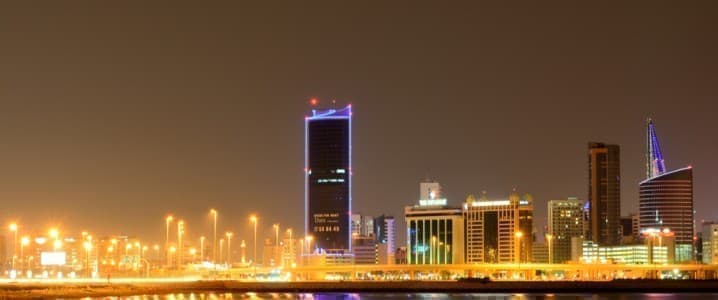Abu Dhabi’s national oil company ADNOC is implementing its diversification plans at a staggering speed. Recently, it announced new major renewable energy projects and investments worldwide, and now the Abu Dhabi giant has re-entered the petrochemical sector in full force. ADNOC has acquired a 25% equity stake in global petrochemical giant Borealis from sovereign wealth fund Mubadala. The acquisition fits perfectly into ADNOC’s ongoing investment strategy to expand its downstream footprint around the world. With the acquisition of the strategic 25% stake in Austrian petrochemicals producer Borealis, the company not only strengthens its foothold in the downstream sector but also acquires major new openings in the European and American markets. ADNOC is stepping out of the shadow of its compatriot Saudi Aramco, which has been very active lately in acquiring major new markets in Europe, especially in former Russian-held positions in eastern Europe and the Baltic. In a reaction to the press, ADNOC’s CEO and Minister of Industry and Advanced Technology, Sultan Al Jabr, stated that the acquisition is a reaction to the expected growth of the global chemicals and petrochemical sectors, due to consumer-led growth. The Abu Dhabi giant will be a co-shareholder with Austrian oil and gas company OMV, which is a strategic operator in eastern and central Europe already. OMV, the Vienna-listed company, will hold the remaining 75% in Borealis. No specific financials have been given. In 2020, Mubadala sold 14% of its stake in Borealis to OMV for around $4.68 billion. That sale price would value the 25% acquisition (at 2020 prices) at around $8-8.5 billion. No specifics have been given by Mubadala on the divestment, but cooperation between the sovereign wealth fund and ADNOC is well documented. Borealis is a major producer of compounds such as polyethylene and polypropylene.
ADNOC and Borealis (aka OMV) have long worked together, especially via the Abu Dhabi Borouge facility. At present ADNOC plans to expand its current 4.5 million tons of downstream capacity (Borouge) by 300%. ADNOC and partners are currently implementing a $45 billion downstream investment plan, of which a Borouge-Borealis $6.2 billion project to set up a 4th plant at Borouge is part. The new facility in Ruwais will receive feedstock from ADNOC, producing polyethylene and polypropylene, as well as benzene and butadiene.
Last week, news emerged that ADNOC and Borealis are targeting an IPO for Borouge. Sources stated that both parties want to sell a 10% stake in the JV, targeting $2 billion, which would value Borouge at present at $20 billion. Indicators are there that the new IPO could be announced in May. Even though global markets are reeling from the fallout of the Russian invasion of Ukraine and the Chinese COVID lockdowns, the Middle East has been very successful lately with its IPOs. Dubai’s utility IPO at the start of this month raised $6.1 billion.
Related: OPEC+ Seen Sticking To Current Production Arrangement
ADNOC’s hunger for expansion is insatiable. In recent weeks, the OPEC producer also showed its eagerness to expand substantially in global LNG markets, as it bought two new LNG tankers from China, to be delivered in 2025. The new vessels are going to be built at China’s Jiangnan Shipyard in Shanghai. The tankers will be bigger than all current ADNOC LNG vessels. Abu Dhabi is very eager to increase its LNG market share, especially as potential gaps left by Russia will need to be filled in Europe. The fall-out of the Russian disaster is expected to push global LNG consumption up by 60%. The new LNG vessel order follows after the acquisition by ADNOC in the last two years of 16 ocean-going vessels. Abu Dhabi wants to double its LNG production in the coming five years to 12 million tons. To support that ambition, ADNOC is currently assessing bids from engineering companies to build a new LNG export terminal. The 2-train 10 million tons per year facility will be built in Fujairah. Part of the feedstock will come from the Hail and Ghasha sour gas scheme. At present, even though Abu Dhabi exports LNG, the state is importing around 1.8 billion cubic feet per day of gas from Qatar via the Dolphin pipeline. To support and feed the new Fujairah plant, a new 52-inch gas pipeline from Habshan, with a transport capacity of 2 BCF, is also being planned.
ADNOC’s plans are vast and aggressive, especially in light of the global LNG investment boom and the production expansion strategies of competitors. In light of the ongoing energy transition, investments in major gas markets, such as Europe and the USA, do come with a level of risk. Still, to take charge of its future, and to take advantage of current market developments, ADNOC’s monetization of its natural resources is a prudent move, especially if revenues are going to be invested in emerging technologies and other future-proof economic sectors. The drive for LNG and other products will need to be based on Abu Dhabi maintaining strong geopolitical and economic ties in both the east and the west.
By Cyril Widdershoven for Oilprice.com
More Top Reads From Oilprice.com:
- U.S. Recession Fears May Be Overblown
- Turkey Tries To Remain Neutral As Russia’s War Persists
- Is China Finally Distancing Itself From Russia?



















No one can fault UAE’s approach to diversification and no one can either doubt that UAE will emerge as one of the world’s most advanced economies in the next 10-15 years.
Dr Mamdouh G Salameh
International Oil Economist
Visiting Professor of Energy Economics at ESCP Europe Business School, London